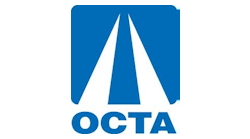California Awards $82M in Grant Funds to Enhance Pacific Surfliner and Commuter Rail Service
The Los Angeles – San Diego – San Luis Obispo (LOSSAN) Rail Corridor Agency (Agency) will receive $82 million in state grant funds for a package of projects that will help expand and improve passenger rail service in Southern California, the California State Transportation Agency (CalSTA) announced.
The funding is part of the 2016 Transit and Intercity Rail Capital Program (TIRCP), which will provide a total of $390 million to 14 projects statewide that will reduce greenhouse gas (GHG) emissions by improving rail and transit services. The TIRCP program is funded by auction proceeds from the California Air Resource Board’s Cap-and-Trade Program. The LOSSAN Agency submitted a TIRCP application in April in partnership with the San Diego Association of Governments, the North County Transit District and the Orange County Transportation Authority titled: “All Aboard: Transforming Southern California Rail Travel.”
“We appreciate CalSTA’s support of this program, which will allow much-needed improvements to the second-busiest intercity passenger rail corridor in the nation,” said LOSSAN Agency Chairman David Golonski. “This program of projects will result in more frequent and integrated passenger rail service, improved on-time performance and safety, and a better overall passenger experience.”
The grant award included $66 million to advance work on a number of high-priority capital improvements, including more than 5 miles of additional double track, replacement of five railway bridges, station and safety enhancements, and signal and switch upgrades. It also includes $15 million for a five-year capitalized lease of new Talgo passenger rail cars to meet growing travel demand, and $1 million for planning studies to improve coordination between all trains operating in the LOSSAN rail corridor.
“The LOSSAN rail corridor is critical to the movement of people and goods from San Luis Obispo and Santa Barbara to Los Angeles and San Diego,” said CalSTA Secretary Brian Kelly. “We are pleased to support investments that will make passenger rail a more attractive travel alternative and help reduce congestion and GHG emissions on parallel highways. We appreciate the efforts of the LOSSAN Agency and its partner agencies to deliver this beneficial project which will ultimately support connectivity with high-speed rail.”
Individual projects included in the LOSSAN Agency’s application that were awarded funding included:
Elvira to Morena Double Track: Constructs 2.6 miles of double track, replaces bridges and makes signal improvements in San Diego County.
Laguna Niguel to San Juan Capistrano Passing Siding: Constructs 1.8 miles of siding and signal improvements in Orange County.
San Diego River Bridge Double Track: Constructs 0.9 miles of double track, replaces and builds a new bridge and makes signal improvements in San Diego County.
Carlsbad Poinsettia Station Improvements: Constructs a new grade-separated passenger crossing, installs new track crossovers, and makes other improvements in San Diego County.
LOSSAN North Robust Timetable: Develops a robust timetable for all trains between Los Angeles and San Luis Obispo that builds upon a similar effort recently completed for the southern segment of the corridor.
LOSSAN Corridor Network Integration and Strategic Investment Study: Plans and implements a comprehensive corridorwide study of integrating all rail services in the corridor.
Talgo Rail Equipment: Provides a five-year capital lease, including maintenance, for 31 rail cars to replace aging trainsets.
The 351-mile LOSSAN rail corridor travels through the counties of San Diego, Orange, Los Angeles, Ventura, Santa Barbara and San Luis Obispo and includes 41 stations with more than 150 daily passenger trains and more than 70 daily freight trains. It is the second busiest intercity passenger rail corridor in the United States with an annual ridership of more than 2.8 million on Amtrak Pacific Surfliner intercity trains and 5 million on Metrolink and COASTER commuter trains.


